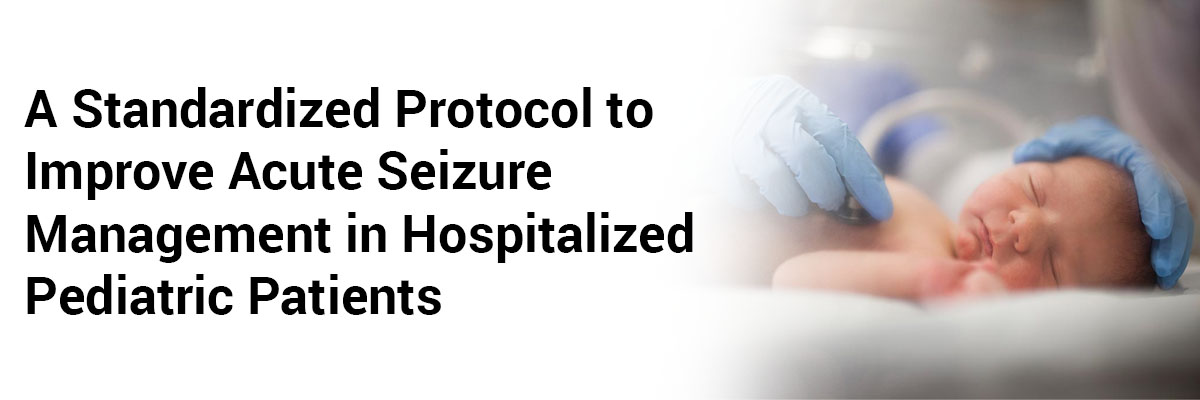
 IJCP Editorial Team
IJCP Editorial Team
A Standardized Protocol to Improve Acute Seizure Management in Hospitalized Pediatric Patients
Epilepsy is a frequent cause of pediatric hospitalization. In such cases, patient safety relies on prompt seizure first aid. A collaborative effort between physicians, nurses and first responders led to prompt and correct delivery of seizure first aid. Variation in practice of bedside nursing providers in acute seizure management, led to incomplete and delayed patient care. A study was conducted with goals to increase consistency and speed of seizure first aid and neurologic assessment in acutely seizing patients.
The researchers defined their primary outcome measures as the number of completed components (total 4) of seizure first aid and number of completed components (total 4) of a brief neurologic examination. The 4 components of seizure first aid were (1) turning patient to the lateral supine position and complete assessment of vital signs, (2) heart rate, (3) oxygen saturation, and (4) blood pressure. The 4 components of the neurologic examination were defined as assessing (1) level of consciousness, (2) mental status (state name, follow simple command, name object), (3) brief cranial nerve assessment with eye movement evaluation; and (4) motor function. The secondary outcomes were the time to seizure first aid and neurologic examination, defined as the interval between nursing notification button activation and the start of the first component of seizure first aid and neurologic assessment by the nurse.
Thirteen seizures were evaluated in the preintervention phase and 10 in the postintervention phase. Completed components of seizure first aid increased from a median of 3 of 4 to 4 of 4; completed components of neurologic assessment increased from a median of 2 of 4 to 4 of 4. Responses to acute seizures were faster, and nursing confidence increased.
Moreover, significant increase in nursing confidence was found in this study. In this study, all data indicate that standardized protocol improved the quality of care for patients with acute seizures.
SOURCE- Hosp Pediatr. 2021 Apr; 11(4): 389–395. http//10.1542/hpeds.2020-000968

IJCP Editorial Team
Comprising seasoned professionals and experts from the medical field, the IJCP editorial team is dedicated to delivering timely and accurate content and thriving to provide attention-grabbing information for the readers. What sets them apart are their diverse expertise, spanning academia, research, and clinical practice, and their dedication to upholding the highest standards of quality and integrity. With a wealth of experience and a commitment to excellence, the IJCP editorial team strives to provide valuable perspectives, the latest trends, and in-depth analyses across various medical domains, all in a way that keeps you interested and engaged.




















Please login to comment on this article